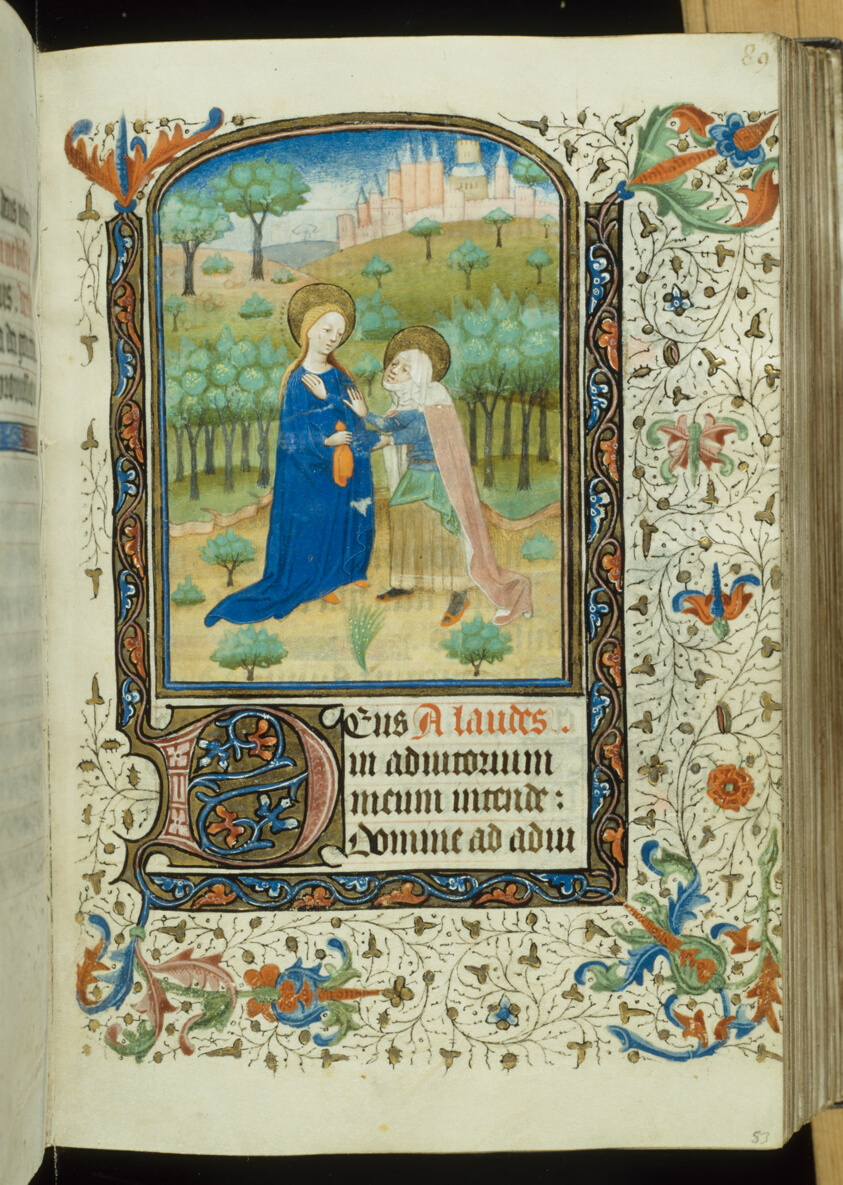On this Feast of the Visitation of the Blessed Virgin Mary, I was thinking about the connection between gratitude and generosity. When we are grateful for what God has done for us and given us, with no merit of our own, we are also open to helping others. If our gratitude is a self-gratitude (pat yourself on your back), that we have successfully avoided some problems because of our own skill or even just happenstance, any generosity we have is muted. If it is of our own doing, then we must protect it and will often think of others in difficult circumstance as deserving of their situation. When you think you deserve any good you received; you are less likely to serve others.
Mary, as a magnifier of the Lord, does not just observe and wonder at her role. Mary responded to news of Elizabeth’s pregnancy with immediate generosity. Setting out on a journey to see her and Zechariah. There is no hesitancy in her faith and trust.
Part of serving others is to observe others. Mary at the Wedding at Cana observes there is no wine and responds by telling Jesus about this. When Jesus answers her, by proxy, she instructs all of us to “Do whatever He tells you.” As a handmaid to the Lord, this is how she lived in gratitude and generosity. As a side note, she did not instruct at Cana, “Understand whatever He tells you.” Mary was forthright in her questions on two occasions.
Today’s feast and my minor reflection on it were also influenced by the role of gratitude in St. Thérèse’s life.
From the ICS Study Edition of “Story of a Soul”[1]
Thérèse begins Story of a Soul with a dilemma. She believed that she was under obedience to write down her childhood memories but felt that by doing so “it would distract my heart by too much concentration on myself” (S, 13). Thérèse found a solution to her predicament in how she would reflect upon her past. “I am going to write…my thoughts on the graces God deigned to grant me” (S, 15).In short, Thérèse chose to look at her life through the lens of what God had done for her rather than through the lens of what she had done or failed to do. Thérèse mused upon her life from the vantage point of how God had graced it. In consequence, Thérèse was filled with gratitude. “It seems to me that if a little flower could speak, it would tell simply what God has done for it without trying to hide its blessings” (S, 15).
“It is the spirit of gratitude which draws upon us the overflow of God’s grace,” said Thérèse, “for no sooner have we thanked Him for one blessing than he hastens to send us ten additional favours in return. Then, when we show our gratitude for these new gifts, He multiplies His benedictions to such a degree that there seems to be a constant stream of divine grace ever coming our way.” The truth contained in Thérèse’s words is not that God sends more blessings when we are grateful but rather that we become more aware of the abundant blessings that we have.
- “Story of a Soul: Study Edition”, prepared by Fr. Marck Foley, OCD https://www.icspublications.org/products/story-of-a-soul-study-edition ↩

